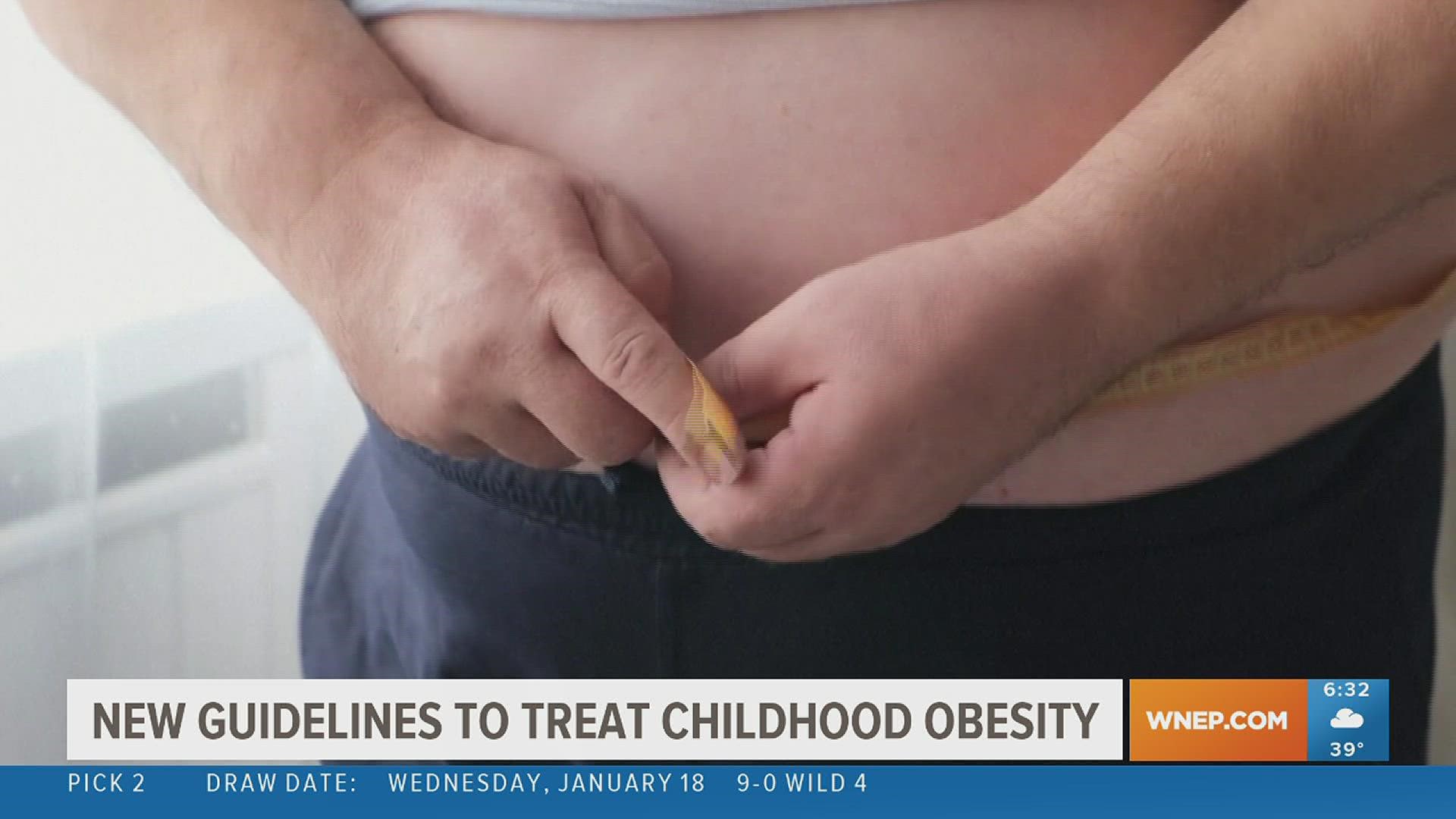PENNSYLVANIA, USA — Weight-loss medications and surgery are now recommended treatment options for teenagers struggling with severe obesity. The American Academy of Pediatrics (AAP) released new guidelines this month.
To parents of kids struggling with weight, these new treatment recommendations may sound extreme.
But pediatricians Newswatch 16 talked to say not only are these treatments safe, they're necessary.
Childhood obesity has been a problem for a long time in the United States. The pandemic, when schools closed and sports and activities were canceled, led to a huge jump in obesity levels among kids and teens.
According to the CDC, "A study of 432,302 children ages 2 to 19 years found the rate of body mass index (BMI) increase nearly doubled during the COVID-19 pandemic compared to a pre-pandemic period. This faster increase was most pronounced in children with overweight or obesity and younger school-aged children."
So pediatricians in our area say these new guidelines couldn't be coming at a better time.
The last time the AAP updated its guidance for doctors was in 2007.
Since then, the standard practice called for a "watchful waiting" approach to childhood obesity, basically hoping kids would "outgrow" it. But years of data shows, most of the time, the opposite happens.
The AAP now recommends weight-loss medications for kids as young as 12 and bariatric surgery for teens as young as 13 to be considered as treatment options in severe cases.
Newswatch 16 talked to a pediatrician in Dickson City and a pediatric expert at Geisinger near Danville to get their take.
"There are a fair number of weight-loss drugs that are approved for kids 12 and over. People were very hesitant to recommend bariatric surgery, but the longer it's been around, what we're finding is that it is safe for certain adolescents. And we've been able to follow those adolescents longitudinally and see that they're keeping the weight off, said Dr. Debra Georgetti from Pediatrics of Northeastern Pennsylvania in Dickson City.
"Those patients, unfortunately, will have a higher mortality rate than their peers with healthier weights. And that's a big concern. That's something that we shouldn't wait on. That's something that we should really use all hands on deck," added Dr. Jennifer Franceschelli-Holsterman from Geisinger.
"We know that if we can try to control this as children, they have a better chance of growing up to be an adolescent and adult that are a normal weight because we know from these studies children that are overweight go on to be adults that are overweight or even adolescents, added. Dr. Georgetti.
"I often will compare weight or obesity to many of the other chronic diseases that we more readily accept. So, just like you wouldn't allow sugars to run very high in a patient with diabetes or asthma to go uncontrolled, you would want to start medications, you would want to increase the intensity of your therapy," Dr. Franceschelli-Holsterman.
These more intense treatments will be reserved for kids with severe cases of obesity, and only after other lifestyle changes and if kids aren't responding to diet, exercise, and behavioral therapy first.
"Essentially, it puts more ammunition in the coffer for us to treat obesity. When we have those kids where we really tried our best with diet, and we've intervened with activity, some of the socioeconomic stuff, we can move on to the next level, which we were really never able to do before."
The guidelines also talk a lot about weight-related stigma and how doctors should take a comprehensive approach to treatment, looking at all of the child's circumstances that may have led them to an unhealthy weight.
Dr. Franceschelli-Holsterman says a common misconception is that "childhood obesity is a lifestyle choice that could be easily reversed by willpower. And what these clinical practice guidelines tell us, and really outline, is that that's just really not the case. Childhood obesity is a complex medical disease that is largely influenced by our genetics, our physiology, our physical surroundings, and our environmental surroundings."
See more health-related stories on WNEP's Youtube page.


